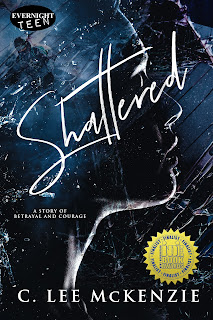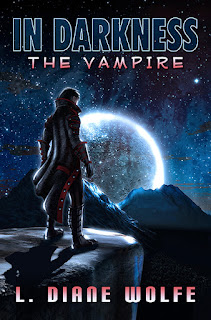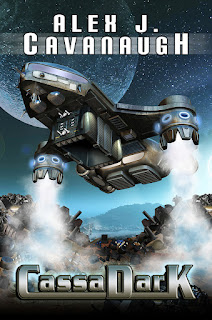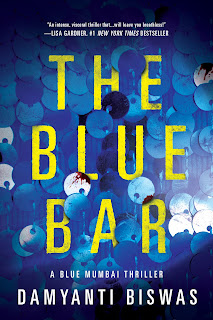Why does your character need a flaw?
The more you can humanize your character, the better your reader can relate to them, which deepens your reader's connection to the entire story.
When you can take this flaw and tie it into the core TRUTH of your story, it will grab them and keep them reading to find out what happens next.
The best part is that flaw your character has helps generate meaningful conflict for the story, and helps you push past bumps or moments of being stuck.
Flaws can be misbeliefs or lies the character holds about themselves or others. Maybe your character grew up in the foster system and believes themselves unlovable.
This makes them feel unlovable and unwanted.
They might spend their whole lives trying to prove themselves worthy or lovable. Every choice they make, even the simplest, can affect every action and motivation derived from the flaw to drive the story or create active conflict.
Maybe they pick the wrong people to involve themselves with and get in trouble proving that point to themselves over and over, and this leads to a self-fulfilling prophecy. When, in fact, it is their unwise choices or negative perspective of life that create these situations.
Or the opposite: they push away when other people get too close, which proves to the character they are unloved and unwanted.
This can create a nice growth ARC for your character throughout the story, and it helps generate conflict connected to the story core.
The flaw can also help you maintain character consistency and give them internal motivation to help you create a deeper reader experience.
A flaw might be that your character is stubborn, strong willed, and determined to do everything alone rather than ask for help.
Maybe they get angry easily and are quick to judge.
Or perhaps a deep need to control everything stemming from a childhood trauma, which puts their relationships, job, or mission in jeopardy.
This character flaw carries the story arc for the character, teaching them the lesson they need to learn, which is to work as a team, and/or to trust others to succeed.
I just saw a good example of a story flaw (which is a disability) on a TV series, The Good Doctor, season six, episode 16: The Good Lawyer.
She has a disorder called OCD. She freezes up sometimes in crucial situations, for example, a sound or something else that doesn't go in cycles of three. It totally debilitates her, causing her angst or hardship.
They linked this disability to a childhood trauma and fear, even though the character knows it is not totally rational. It affects her behaviors, choices, and shapes the life she is currently living.
How knowing this can help?
Knowing the flaw can create strong motivation and internal conflict for your character. This causes them to act out their choices by taking action, which can create external conflict and situations tied to the flaw or misbelief.
In the example above for the OCD lawyer, why did the character want to overcome her flaw? She wanted to be normal and a trial lawyer. She wanted to be a lawyer, not just a researcher for lawyers.
A novel can have many themes throughout the tale, but there is only one through-theme that drives the story to the end. That through-theme can be represented in your character’s growth arc.
Finding the character theme is simply the way the theme affects your character at the beginning of the story vs who they become by the end of the story.
What is the story theme?
Abby Emmons says, “The theme is universal, and the theme means truth.” Here is a great video about the theme.
Google and Oxford Languages: Theme noun
1. the subject of a talk, a piece of writing, a person's thoughts, or an exhibition; a topic.
"the theme of the sermon was reverence"
Love
Death
Good vs Evil
Revenge
Survival
Prejudice
You will want to break these down into components. Figure out why they are meaningful to your character, how they shaped your character and motivate your character. (Check Abby Emmons' video linked below in the next section to learn more.)
Connect your character's deep need or desire to a theme, and then flip it on its head to show the polar opposite. You can use it to show drive and motivation through choices and false beliefs about their world or other people.
In the OCD example, the character’s deep need was to help people. She was a trial lawyer because a lawyer helped her as a child, but because she has OCD, she thought she could never do that, so settled for being a researcher for trial lawyers.
In the beginning, the choices she made were around avoiding people and she focused on research. However, this left her frustrated, until she acted despite her flaw, and it became her strength which made her a better trial lawyer with a unique perspective.
A tip for finding the flaw.
Abby Emmons says, “Flip the theme to find your character's flaw. Look at your story's truth via the main theme, flip it, and make it a LIE.” More in this video about why. (More study related video ref: Enneagram.)
The Chosen One: FLIPPED: The character is the chosen one, but doesn’t believe or know it, or just shows up as an unlikely hero/heroine. We often see this trope in fantasy.
The Girl Next Door: The girl next door does not believe the boy she is crushing on would look at someone like her. Because she sees herself as ugly, overweight, or wears glasses or something, she thinks, makes her not attractive enough. In reality, it is a confidence thing—her character flaw is low self-esteem. All this connects back to the theme and drive within a story often seen in romance or women’s fiction.
Too Good To Be True–The Jaded One. Things are too good to be true, so they do not accept the love that is offered or friendship, or they create conflict via mistrust and being difficult to deal with. We might also consider this a trope or theme.
A Loose Cannon. The character might have anger issues that cause them problems and embarrassing situations. Or maybe they are too impulsive which causes them to act without thinking, putting them into dangerous situations, or shows a lack of good judgment. These things can also be a character arc connected to the theme.
Conclusion:
Understanding your character's flaw and how it connects to your main truth or theme, can help build stronger characters and stories. Knowing that connection helps you leverage conflict and story arc to drive the story through to the end and keep the reader engaged.



.jpg)









